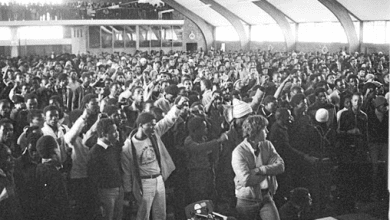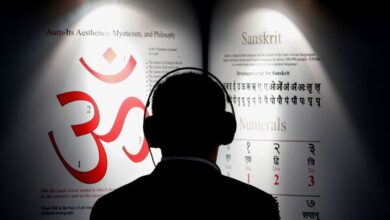Devali Festival History
Unveiling the Rich Tapestry of Devali Festival History: From Ancient Origins to Global Celebrations
Explore the captivating journey of Devali Festival history, tracing its roots back to ancient India and its evolution into a global celebration. Discover the profound symbolism, myths, rituals, and the transformative spirit that illuminate this cherished festival. Join us as we delve into the historical tapestry of Devali, where light triumphs over darkness, and tradition weaves a story of unity, hope, and spiritual enlightenment.
Read also:
Introduction
The Devali Festival, also known as Diwali or Deepavali, is a significant and joyous celebration observed by millions of people around the world. It holds deep cultural and religious importance, marking the victory of light over darkness and good over evil. This article delves into the history, traditions, and diverse celebrations of the Devali Festival, uncovering its origins, mythological legends, rituals, and contemporary interpretations.
History and Origins
With roots dating back thousands of years, the Devali Festival finds its origins in ancient India. Derived from the Sanskrit word “Deepavali,” meaning “row of lights,” the festival’s earliest mentions can be traced to Hindu scriptures. It commemorates Lord Rama’s triumphant return to Ayodhya after defeating the demon king Ravana. The lighting of oil lamps, or diyas, symbolizes the path illuminated for Rama’s homecoming. Over time, Devali evolved, incorporating regional customs and becoming a unifying celebration of diverse cultures.
Significance
The Devali Festival holds immense cultural and religious significance for Hindus, Jains, Sikhs, and Buddhists. It represents the victory of righteousness over wickedness and the awakening of spiritual consciousness. Beyond its religious connotations, Devali fosters unity, strengthens familial bonds, and encourages acts of charity and goodwill. The festival’s essence extends beyond its origins, resonating with people of various backgrounds as a celebration of light, hope, and togetherness.
Mythological Legends
Devali is accompanied by a myriad of captivating mythological legends. The tale of Lord Rama’s return is central, but other stories, such as the triumph of Lord Krishna over the demon Narakasura, also contribute to the festival’s diverse tapestry of narratives. These stories not only entertain but also impart valuable life lessons, inspiring individuals to conquer their inner demons and uphold righteousness.
Rituals and Traditions
The Devali Festival is characterized by a plethora of rituals and traditions that vary across regions and communities. Decorating homes with colorful rangoli designs, exchanging heartfelt gifts, offering prayers to deities, and partaking in elaborate feasts are common practices. The lighting of diyas not only symbolizes the victory of light but also represents the illumination of knowledge and the dispelling of ignorance.
Festival Preparations
Preparations for Devali commence well in advance, with families cleaning and renovating their homes to welcome the goddess Lakshmi, who signifies wealth and prosperity. Shopping for new clothes, buying gifts, and stocking up on festive sweets are integral to the build-up of excitement. Additionally, families engage in a spiritual cleanse, purifying their minds and homes to embrace the festival with renewed devotion.
Festival of Lights
The Devali Festival is renowned as the “Festival of Lights,” and the brilliance of illuminated diyas and lanterns transforms cities and villages into enchanting landscapes. The play of light and shadow paints a vivid picture of hope and positivity, captivating hearts and fostering a sense of shared celebration.
Traditional Cuisine
Devali is synonymous with delectable treats that tantalize taste buds. Traditional sweets like ladoos, barfis, and chaklis grace every home, prepared with love and shared with neighbors and friends. Savory delights like samosas and pakoras add a savory twist to the culinary extravaganza, making Devali a feast for both the senses and the soul.
Global Celebrations
Beyond its Indian roots, the Devali Festival has transcended geographical boundaries, becoming a global celebration of multiculturalism. In various countries, diverse communities come together to commemorate the festival with enthusiasm and fervor. The shared experience of illuminating darkness creates a global tapestry of unity and understanding.
Modern Celebrations
While rooted in tradition, the Devali Festival has embraced modern interpretations. In addition to traditional rituals, contemporary observations include cultural events, performances, and exhibitions. The festival’s message of triumph, hope, and enlightenment resonates with people seeking meaning and inspiration in a rapidly changing world.
Symbolism and Themes
Delving deeper into Devali reveals a tapestry of symbolism and themes. The lighting of diyas signifies the dispelling of ignorance, while rangoli designs symbolize the beauty and impermanence of life. The festival’s overarching themes of victory, self-reflection, and the pursuit of knowledge inspire individuals to embark on a transformative journey.
Diyas and Rangoli
The art of decorating with diyas and creating intricate rangoli designs is a cherished Devali tradition. Diyas, often made from clay, are lit to invite the goddess Lakshmi into homes. Rangoli, colorful patterns made with rice flour, chalk, or flower petals, adorn entrances, adding a touch of artistic elegance to the festive atmosphere.
Devali Fashion and Attire
The festival provides an opportunity for individuals to showcase their finest attire. Vibrant silk sarees, ornate jewelry, and traditional outfits reflect the richness of Indian culture. Fashion becomes a form of self-expression and a way to pay homage to the festival’s splendor.
Spiritual Significance
Beyond its external celebrations, the Devali Festival holds profound spiritual significance. It encourages introspection, self-improvement, and the cultivation of inner light. The triumph of light over darkness serves as a metaphor for overcoming challenges and embracing one’s innate divinity.
Family and Community Bonding
Devali strengthens familial bonds, with families coming together to celebrate, share meals, and exchange gifts. The festival fosters a sense of unity and belonging, reminding individuals of the importance of family and the joy of collective celebrations.
Charity and Giving
Devali emphasizes the spirit of giving and compassion. Many individuals use the festival as an opportunity to engage in acts of charity, supporting those in need through donations and philanthropic efforts. The act of giving becomes a way to spread the festival’s message of love and generosity.
Devali in Literature and Art
The festival’s beauty and symbolism have inspired writers, poets, and artists throughout history. Literature, music, dance, and visual arts capture the essence of Devali, infusing it with creativity and expression. These artistic endeavors immortalize the festival’s magic and contribute to its enduring legacy.
Devali and Indian Cinema
Indian cinema has also embraced the spirit of Devali, incorporating its themes and celebrations into numerous films. The festival’s vibrancy, values, and sense of unity have been portrayed on the silver screen, further solidifying its place in popular culture.
Environmental Impact
In recent times, there has been a growing emphasis on eco-friendly Devali celebrations. With concerns about environmental sustainability, many individuals opt for environmentally conscious practices, such as using LED lights and natural materials for decorations. These efforts reflect a contemporary awareness of the festival’s ecological impact.
Devali and Technology
The digital age has brought new dimensions to Devali celebrations. Social media platforms and technology allow individuals to connect, share festive moments, and participate in virtual celebrations. Embracing technology while preserving tradition showcases the festival’s adaptability and relevance in the modern world.
FAQs
Q: What does the term “Devali” mean?
A: “Devali,” derived from the Sanskrit word “Deepavali,” translates to “row of lights,” symbolizing the lighting of lamps to dispel darkness.
Q: Why is Devali celebrated?
A: Devali commemorates the victory of light over darkness and good over evil, while also signifying unity, hope, and prosperity.
Q: How is Devali celebrated globally?
A: Devali is celebrated worldwide through diverse customs, including lighting diyas, exchanging gifts, and participating in cultural events.
Q: What is the spiritual significance of Devali?
A: Devali holds spiritual significance, encouraging self-reflection, inner growth, and the pursuit of knowledge and righteousness.
Q: What role does charity play during Devali?
A: Charity is a central aspect of Devali, with many individuals engaging in acts of giving and philanthropy to spread love and generosity.
Q: How has Devali influenced Indian cinema?
A: Devali’s themes of triumph and unity have been depicted in Indian films, showcasing its cultural and emotional resonance.
Q: How can Devali be celebrated in an eco-friendly manner?
A: Eco-friendly Devali celebrations involve using LED lights, natural materials, and sustainable practices to minimize environmental impact.
Conclusion: Devali Festival History
The Devali Festival stands as a radiant beacon, illuminating the path of tradition, culture, and spirituality. With its origins deeply embedded in ancient history, the festival continues to evolve, embracing both tradition and modernity. Through its vibrant lights, captivating rituals, and timeless messages, Devali bridges the gap between past and present, uniting people in a celebration that transcends boundaries. As the diyas light up the darkness, the festival reminds us that even in challenging times, the flame of hope and positivity can guide us towards a brighter future.



